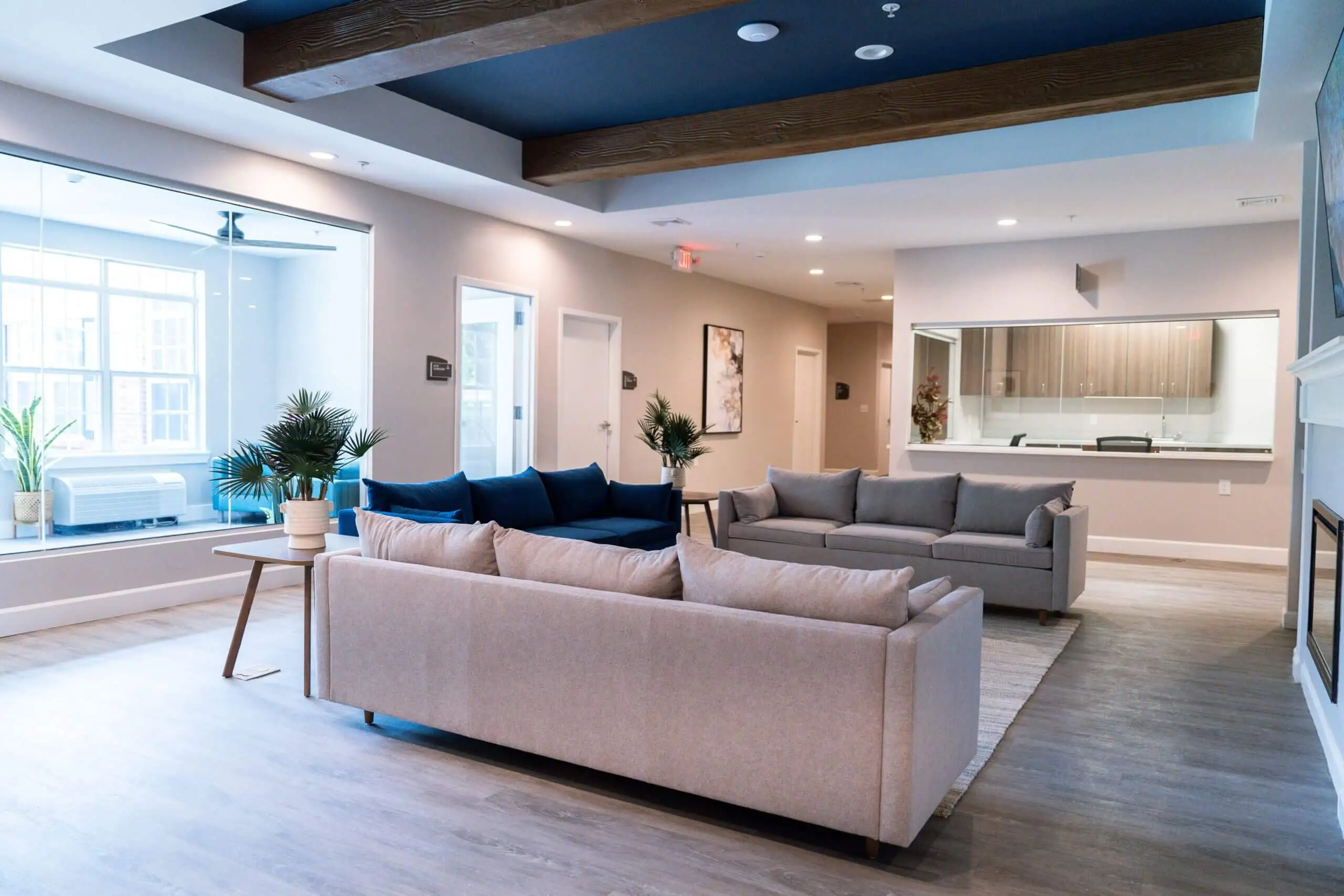When facing mental health challenges or substance use disorders, choosing the right treatment center can feel overwhelming.
With various levels of care and specialized programs available, understanding your options is the first step toward healing and recovery.
At Arbor Wellness, we believe that informed decisions lead to better outcomes, which is why we’ve created this comprehensive guide to help you navigate the different types of treatment centers available.
Understanding Treatment Centers for Mental Health
Mental health treatment centers provide structured environments where individuals can receive professional care tailored to their specific needs. These facilities offer evidence-based treatments, qualified staff, and supportive communities that foster healing and growth. The key to successful treatment lies in matching the right level of care to each person’s unique circumstances, severity of symptoms, and personal goals.
Residential Treatment Centers
Residential treatment centers provide 24-hour care in a structured, therapeutic environment. These facilities are ideal for individuals who require intensive support and supervision while working through complex mental health issues or substance use disorders.
Key characteristics of residential centers include:
- Round-the-clock medical and psychiatric supervision
- Structured daily schedules with therapy, meals, and recreational activities
- Removal from triggers and stressors in the home environment
- Intensive individual and group therapy sessions
- Typical stays ranging from 30 to 90 days, depending on individual needs
Residential treatment is particularly beneficial for those experiencing severe depression, bipolar disorder, eating disorders, or co-occurring mental health and substance use disorders. The immersive nature of residential care allows for comprehensive assessment and intensive therapeutic intervention.
Outpatient Treatment Centers
Outpatient treatment centers offer flexibility while providing essential mental health services. These programs allow individuals to maintain their daily responsibilities, work, school, and family commitments, while receiving professional support and treatment.
Outpatient care typically includes:
- Scheduled therapy sessions several times per week
- Psychiatric evaluations and medication management
- Group therapy and peer support opportunities
- Flexible scheduling to accommodate personal obligations
- Gradual transition back to independent living
- Partial Hospitalization Programming (PHP)
- Intensive Outpatient Programming (IOP)
This level of care works well for individuals with stable living situations, strong support systems, and the motivation to engage in treatment while managing daily life responsibilities.
Types of Outpatient and Rehab Programs
Modern mental health treatment centers offer a variety of specialized programs designed to address different aspects of mental health and recovery. Understanding these options can help you or your loved one find the most appropriate care.
Behavioral Therapy Programs
Behavioral therapy forms the cornerstone of many treatment programs, focusing on identifying and changing negative thought patterns and behaviors that contribute to mental health challenges.
Common behavioral therapy approaches include:
Cognitive Behavioral Therapy (CBT) helps individuals recognize the connection between thoughts, feelings, and behaviors. Through CBT, clients learn practical skills to challenge negative thinking patterns and develop healthier coping mechanisms.
Dialectical Behavior Therapy (DBT) combines cognitive-behavioral techniques with mindfulness practices. Originally developed for borderline personality disorder, DBT is now used to treat various conditions involving emotional dysregulation.
These evidence-based approaches provide clients with concrete tools and strategies they can use long after treatment ends, making them particularly valuable for long-term recovery.
Support Groups
Mental health support groups create powerful communities of healing where individuals with similar experiences can share their journeys, challenges, and victories. These groups provide peer support that complements professional treatment.
Benefits of support groups include:
- Reduced feelings of isolation and shame
- Practical advice from others who understand similar challenges
- Accountability and encouragement for maintaining progress
- Opportunities to help others, which can boost self-esteem and purpose
- Cost-effective complement to individual therapy
Support groups may focus on specific conditions (such as depression or anxiety), particular demographics (such as teens or seniors), or general mental health wellness. Many treatment centers facilitate these groups as part of their comprehensive care approach.
Psychiatric Services
Psychiatric care involves medical evaluation and treatment of mental health conditions, often including medication management when appropriate. Psychiatrists are medical doctors who specialize in mental health and can prescribe medications to help manage symptoms.
Psychiatric services typically include:
- Comprehensive psychiatric evaluations
- Medication prescribing and monitoring
- Regular follow-up appointments to assess treatment effectiveness
- Collaboration with therapists and other treatment team members
- Education about mental health conditions and treatment options
For many individuals, combining psychiatric care with therapy provides the most comprehensive approach to mental health treatment. Medications can help stabilize symptoms, making it easier to engage in therapy and develop coping skills.
Aftercare Planning
Successful treatment extends beyond the formal program period. Alumni and aftercare planning ensures individuals have continued support and resources as they transition back to their daily lives and work to maintain their progress.
Effective aftercare plans often include:
- Ongoing therapy sessions, either individual or group
- Regular psychiatric follow-ups for medication management
- Connection to community resources and support groups
- Crisis intervention plans for managing difficult situations
- Family therapy or education to strengthen support systems
- Gradual reduction in treatment intensity while maintaining support
Aftercare planning begins early in treatment and evolves based on individual progress and changing needs. This forward-thinking approach significantly improves long-term outcomes and reduces the likelihood of relapse.
Taking the Next Step in Your Mental Health Journey
Understanding the different types of treatment centers and mental health programs is just the beginning. The most important step is reaching out for help and starting your journey toward better mental health. Every person’s path to wellness is unique, and finding the right combination of treatments and support can make all the difference in your recovery.
At Arbor Wellness, we’re committed to helping you find the treatment approach that best fits your individual needs, circumstances, and goals. Our experienced team understands that seeking help takes courage, and we’re here to support you every step of the way.
Ready to learn more about your treatment options? Contact Arbor Wellness today to speak with one of our compassionate intake specialists. We’ll help you understand which type of treatment center and program might be right for you or your loved one. Call us now or visit our website to schedule a confidential consultation and take the first step toward lasting healing and recovery. Your mental health matters, and help is available.

















